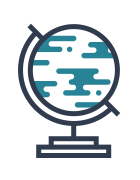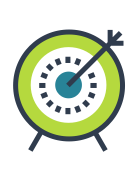RESOURCES
Research Tips
The Investigation phase includes developing Guiding Questions and identifying Guiding Activities and Resources. An effective Investigation sets the foundation for meaningful and impactful Solutions. Creating a solid set of Guiding Questions is a crucial step before starting your research. The questions you prioritize will guide your Investigations, so choose carefully. Remember to find the answers to all of your questions, synthesize your thoughts and then use this information to identify solutions.

Start and Stay Organized
A key to a productive Investigation is creating an organizational structure and then sticking to it. There is always the temptation to skip steps and jump to conclusions, but this will lead to missed information, bias, and “half-baked” ideas. Disorganized and incomplete Investigations are not a good recipe for innovation. Remember to use the Challenge Planner as a resource!

Create Good Guiding Questions
Review the tips on becoming a great questioner. Start by brainstorming lots of questions. Check to see if you have over and under the surface questions. Ask others what questions they can think of about your Challenge. Prioritize and focus on the questions that you feel are the most important.

Search Effectively
The Internet has lots of information. It also has biased and incorrect content. Learning how to search effectively and identify quality information is critical.
- Fine-tune your search – use different keywords and exact phrases to find what you need
- Look for different types of resources: scholarly journals, articles, blog posts, or current events.
- Be sure to check the validity of your sources. Are they credible? How do you know?

Use Your Networks
Think about the networks you are apart of; family, friends, teachers, the neighborhood community, your connections on social media, etc. Each of these groups can help you find the answers you need. Use tools and processes such as interviews, surveys, and polls to answer questions that will lead you to a meaningful Solution.

Avoid Bias
Be careful to avoid using the Investigation to support a pre-conceived solution. Bias can start by only asking the questions you want to hear the answers to and then asking only the supportive people. The Investigation should uncover new ideas and challenge your assumptions. Biased research leads to wrong answers, open and rigorous research leads to innovation and sustainable solutions.

Connections, Causes, and Effects
As you are participating in the activities to answer your Guiding Questions, review your research findings regularly. As you read through your research, interview, and survey notes, look for interesting patterns. Are there specific ideas that continue to emerge? A consistent language? A set of shared issues or concerns? These will help guide further Investigation and lead to meaningful solutions.
